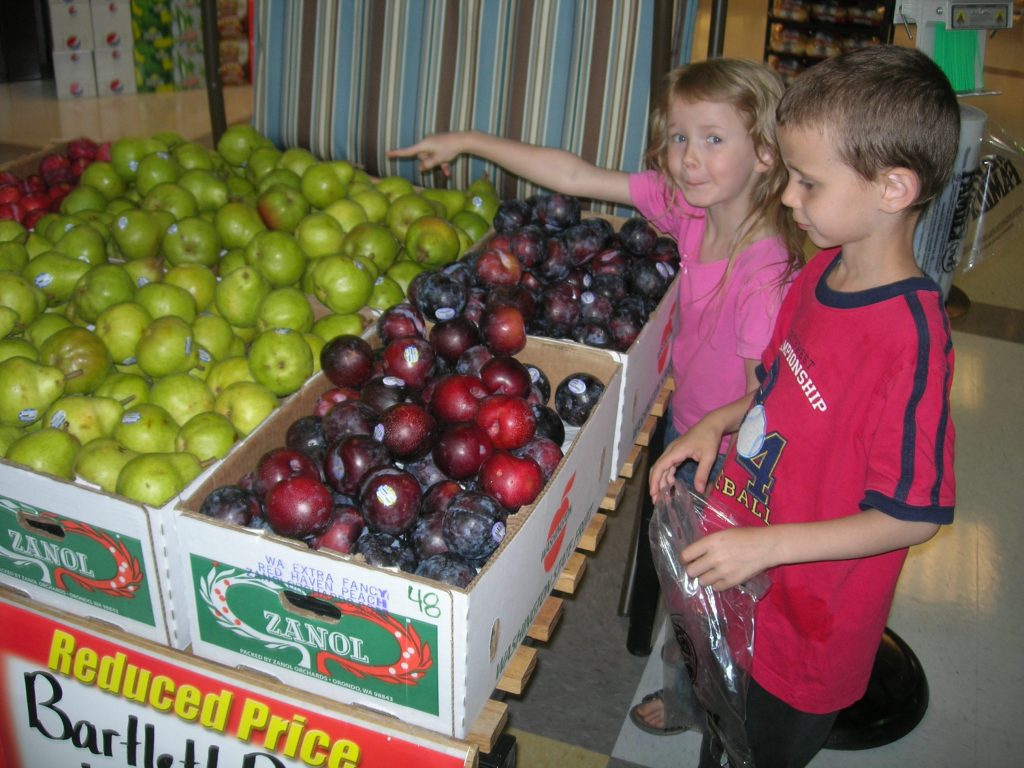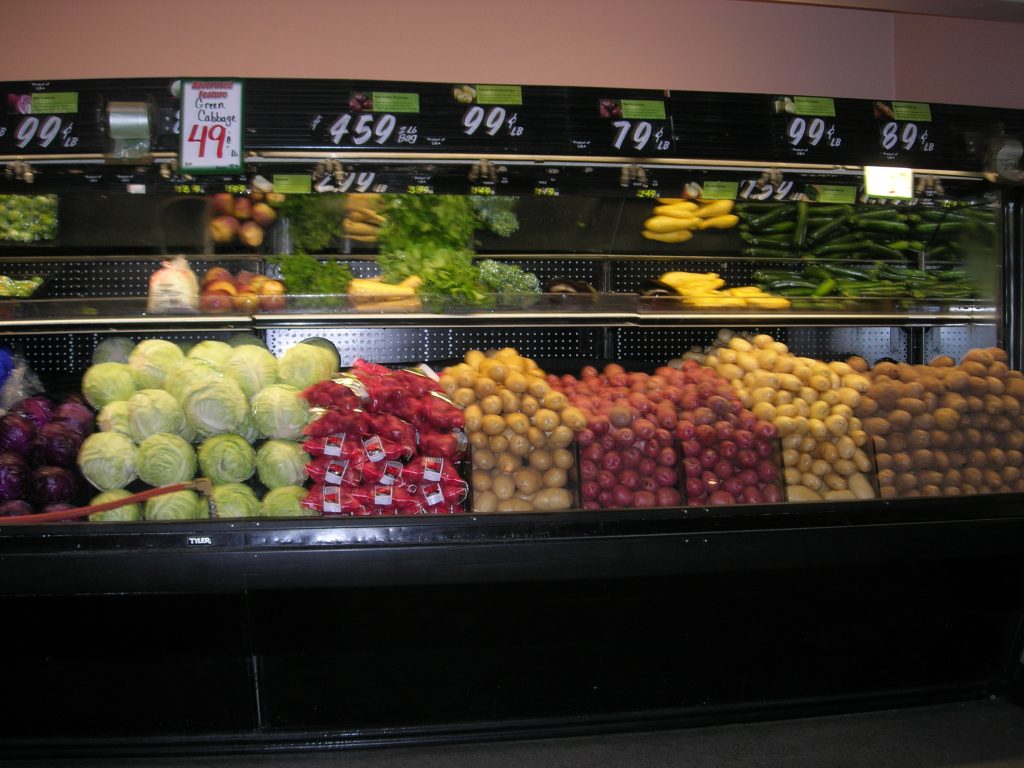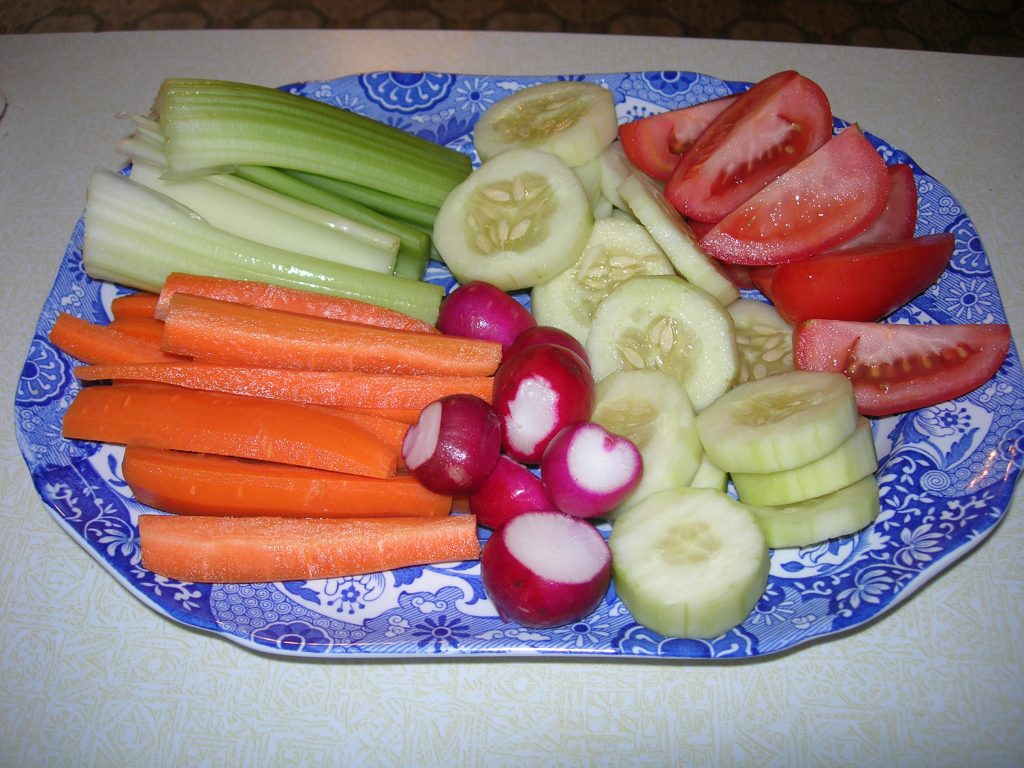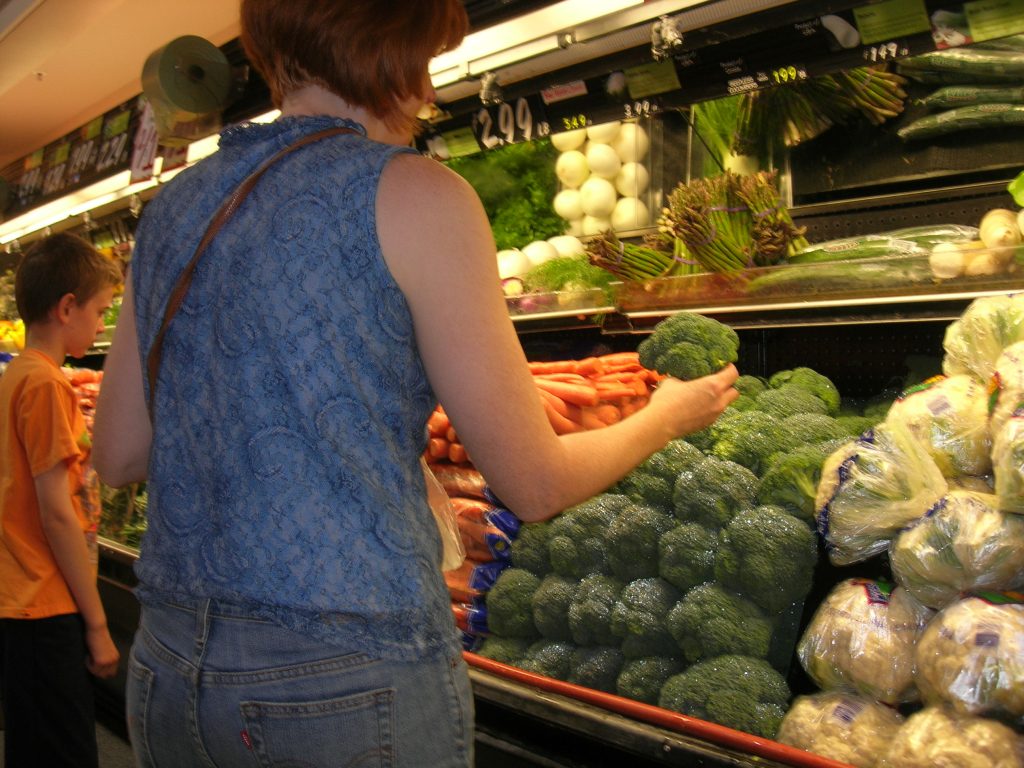Saving money on groceries is something that everyone is trying to do in our economy. First off, I would stock up on “loss leaders.” Those are the promotions that the grocery store loses money on (or barely breaks even) to get you into the store to buy all your other groceries. What I did when money was really tight was this: I would spread out all the front pages of the grocery fliers (the ones you get for free that are delivered to your house). The front page of each flier had the best deals, and I would circle anything that we liked to eat. Then I would go to each store and buy only loss leaders, and maybe one or two simple things like eggs that I needed. I came home with $200 worth of groceries for less than $100. I did this regularly for years until the gas prices went up and two of my kids were lactose intolerant.
Then I had to change my plan. Driving all over town cost more than what I was saving on some of the groceries. Lactaid milk cost a dollar less per half gallon at Walmart than at any other store. It saved me $30 a month. I also noticed that generic Saltines were 99 cents regularly at Walmart, and normal grocery stores charged almost $4. We ate Saltines with soup all the time at our house; maybe 4 or 5 boxes a month, besides the home-made cheese and crackers and peanut butter and crackers that I made whenever my husband wanted to go out with the family any time around meal time. If I brought a cracker snack with us (and recycled bottles of water), we could make it home without fainting and without buying fast food, which we couldn’t afford back then.
This is not an ad for Walmart. They are not the cheapest for everything (especially meat), but if you combine coupons with Walmart’s low prices and buy meat at other stores during big sales, you can pretty much buy your food for much less. I ended up going to Walmart once every two weeks, which was my normal schedule for buying food. We would have fresh fruits and vegetables the first week, then canned or frozen the second week. If you go to the store fewer times, you save money. It’s a fact. Milk now lasts at least two weeks, so there is no reason to go to the store between times. Staples like eggs and bread, you should know how much your family normally eats. It was only once or twice a year that I had to send my husband to get one thing at the store. Otherwise I already had everything.
Another way I’ve saved money is by finding hunters. The hunters’ wives usually have extra freezers full of deer meat, and they are so sick of it, they often want to throw away perfectly good meat. I’ve often gotten 50 pounds of free meat this way. It was a life saver back when we had no money whatsoever. If you can’t stand the taste of deer meat, mix it with regular meat, and it’s not so bad. And recipes like chili are so strong that it wouldn’t matter what kind of ground beef was in it.
Make recipes with what you already have. So many months we had no money in the bank or in our wallets, and we had to make it two more weeks before paycheck. I would write down everything in the freezer, cupboard, and fridge. Then I would ration out the meat, fruit, and vegetables. I always made sure to give my children protein, milk products (for calcium), fruits, and vegetables each day. Then I filled up the rest of their belly with cheap carbohydrates like potatoes, rice, bread, or whatever. The children were always full, even though I was rationing the foods that were more expensive. Junk food was absolutely out of the question, since we barely had enough money for the core foods. I would sometimes get the coin jar, grab all the quarters, and go to the store for fruits and vegetables, because we ran out of these the fastest. My children were healthy.
I’ve never been able to grow my own food without a monetary loss. The soil and seeds cost more than the real food when it’s on sale. (This is purely from a monetary point of view. Of course, the food tastes way better from your own garden, if you can actually get the stuff to grow.) Sometimes people from church would give us excess garden produce. There was no way I wanted to waste any of it. One time we had an enormous amount of broccoli. This was back when broccoli wasn’t a favorite with my kids. I waited to serve lunch an hour late, so that the kids would be ravenously hungry. I made a heaping plate of steamed broccoli, and I put it in the center of a small table. I squeezed lemon juice on it, and I told them that the rest of their food for lunch would not come until the plate was empty. Then I distracted them as they ate by teaching them something, since I normally homeschool during lunch. They mindlessly ate it all. Now broccoli is one of their favorite vegetables. (I washed, chopped, and froze the rest of it so they wouldn’t totally get sick of it.)
In general, if you combine coupons with an item that is already on sale, you can get the food almost for free. But the number one thing I always did was to pray for the groceries I needed. God always supplied, and He is faithful.
Tags: finances, frugal living, groceries, saving money







I do a lot of this also 🙂
I’m just amazed that anybody can grow vegetables and not end up spending more money on the dirt and seeds than just buying the vegetables at the store!
If you can ever read “The Complete Tightwad Gazette,” it explains how to make a price book for the grocery store. I did that when I was single (granted, that was 10 years ago) and lived for a couple years with a grocery budget of $50 per month, including toiletries and cleaning supplies. After I got married, our grocery budget was $80 per month for a couple more years. The benefits of the price book is that you know which store ususally has the best price for each item that you buy, so you can stock up on that when you’re around that particular store. Saves on gas, too.
I’ve read the Tightwad Gazette, too. It tells you to do things that will only save you less than a penny, so some of the stuff is ludicrous. But other ideas are helpful. I never made a price book because I did other things with my time, but I had a general idea about how much something was supposed to cost. If you’re paying attention, for example, to how much you normally pay per toilet paper roll, you can easily figure out if you’re getting a good deal on it or not, even without a price book.
My son is determined to start a garden this spring. Mostly he is interested in cleaner/greener foods, but I think he also thinks there’s some money to be saved by growing your own produce. I’ve never tried it, but my instinct is that your thinking is correct, and it’s going to be a money suck. And we do much of our shopping at Walmart, also. I hate that (and my son *really* hates it), and wish that I had an alternative, but so often these days cost is the deciding factor.
I’m sure the food tastes way better when you grow it yourself, though, and it has more nutrients. So that would be worth it. Maybe the second and third years wouldn’t cost so much because you already bought the soil and seeds in year 1.